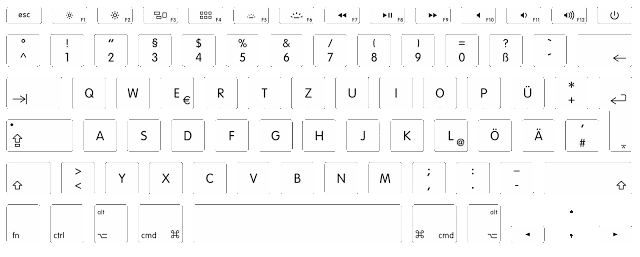Battling Dyslexia: My Jumbled Brain, My “Careless” Grammatical Errors
- Lavavoth

- Jul 11, 2017
- 3 min read
Updated: Apr 10, 2025


On a visceral level, I recognized how psychologically damaging those words could be, so I kept quiet and pretended to understand everything I read.
There’s a reason I revise endlessly. On the surface, it might seem like perfectionism is the driving force, but that’s not embedded in my nature. Despite certain traits that suggest otherwise, I’m not Type A. I revise tirelessly because I’m dyslexic.
Devoid of Psych Evals
I was never properly diagnosed or evaluated as a child, partly because I learned how to fly under the radar—by working harder than most of my peers to complete schoolwork in a way that appeared acceptable. But even then, I knew something felt off. I also understood the consequences of being placed in special education. I feared the labels—“slow,” “retarded.”
On a visceral level, I recognized how psychologically damaging those words could be, so I kept quiet and pretended to understand everything I read. But my writing always gave me away. Writing is my Achilles’ heel—my greatest challenge—yet, ironically, one of my deepest passions.
The Real Enigma Machine
Typing feels like operating an Enigma machine—especially when I overanalyze the keyboard and my brain begins to see the already chaotic jumble of letters as indecipherable, shape-shifting codes on each key.
Often when I write, I leave out words—sometimes entire sentences. Other times, I repeat words by mistake (the the, is is) or leave in articles I meant to remove during revision (the a, an the, etc.). Occasionally, I’ll type a completely different word than the one I intended. Typing feels like operating an Enigma machine—especially when I overanalyze the keyboard and my brain begins to see the already chaotic jumble of letters as indecipherable, shape-shifting codes on each key. And because driving myself insane is apparently entertaining, I periodically type on a German keyboard [1] just to make things more interesting. When I type, I often insert spaces where they don’t belong and drop letters altogether (tha nto, i nto, thn kyou, etc.).
Dyslexia is a constant challenge, but over the years—thanks in part to assistive technologies and my own creative strategies—I’ve learned how to live with it and function at a relatively typical level. Still, it’s never easy. Every time I blog or send an email, I find errors on the second, third, or even fourth read. Thankfully, reading has become easier. Now, when I can, I find the Audible version of a book so I can listen while I read. Hearing the words as I follow along improves my comprehension and helps me stay focused. Without that support, it’s easy to get lost on a dense, single-spaced page.
My Tireless Reader, "Alex"
The editing process has gotten a little easier over time. I often use my buddy “Alex”—the built-in voice on my iMac—to read aloud what I’ve written. It’s one of the best tools I have for catching errors, though it’s not foolproof. I still have to be the one to spot and correct the mistakes [2]. When I skip using Alex and reread a blog post on my own, I almost always find more errors later. That’s deeply embarrassing for me, especially because I still fear being seen as “dumb” or “careless.”
It’s not easy to share this part of myself, especially because it’s the kind of disability that has no real remedy. Maybe that’s why the visual arts and spirit communication have always come so naturally to me. I’ve learned to attune my senses to other modes of perception to compensate for what I lack. And in some ways, my disability has opened doors to possibilities that feel genuinely magical.
Notes
[1] Always finding a way to bring in the topic of WWII. This was a period of deep Blind Love creation with with the spirits of soldiers.
[2] Addressing the topic of dyslexia also highlights the maddening task of writing a book and how over time, I unraveled as a result of my tireless revising---a kind of Sisyphus dilemma where each revision yielded both progress and set backs in the writing and therefore becoming an absurd and futile endeavor on repeat.


Comments